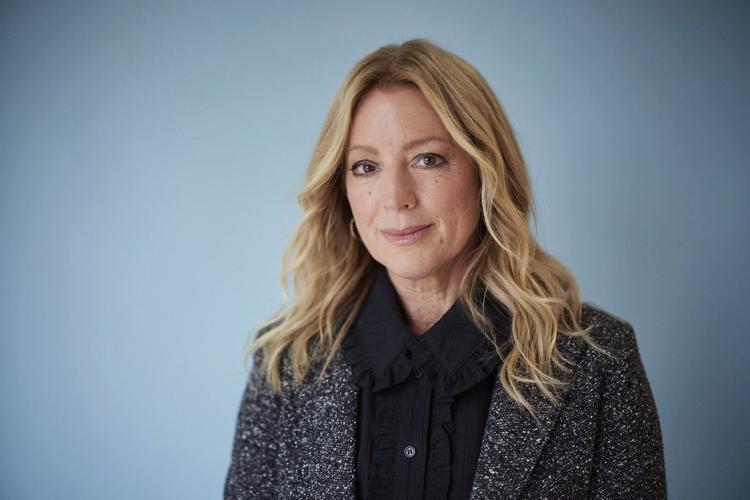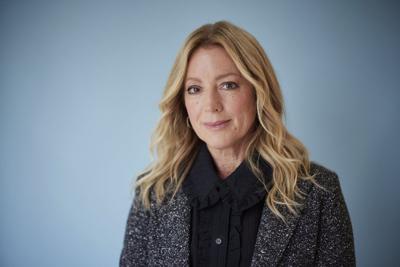NEW YORK (AP) ŌĆö Sarah McLachlan’s first album in over a decade was supposed to be her last.
At least, it felt that way to her for a short while. Out Friday, the release, titled ŌĆ£Better Broken,ŌĆØ has been many years in the making. ŌĆ£It had been so long since IŌĆÖd made a record,ŌĆØ she told The Associated Press. ŌĆ£I kind of thought, maybe this is my last one.ŌĆØ But working with a new team of collaborators reignited her in the studio. These 11 tracks are the result ŌĆö but they’re not a swan song.
ŌĆ£Some of these songs are 14 years old. Some of them were written last year,ŌĆØ she said. ŌĆ£I was a dance mom for a bunch of years, and I was also the principal fundraiser for my music schools ... Music took a backseat. So thatŌĆÖs why it took 11 years.ŌĆØ
Now, music has clutched the steering wheel. In November, she’ll tour ŌĆ£Better BrokenŌĆØ across nine U.S. cities, beginning in Washington on Nov. 16 at The Anthem and ending Nov. 29 at Los Angeles’ The Orpheum Theatre. She’ll hit Philadelphia, New York, Boston, Chicago, Minneapolis, Seattle and San Francisco as well. General ticket sales begin Sept. 26 at 10 a.m. local time.
and it has healed me over and over and over again,ŌĆØ she said. With the ŌĆ£Better BrokenŌĆØ album and tour, she hopes her music can heal listeners, too, ŌĆ£in some small way. I hope it can lift them and connect them to their emotional worlds.ŌĆØ
In an interview with the AP, McLachlan discussed her new album, a forthcoming Lilith Fair documentary and yes,
This interview has been edited for brevity and clarity.
AP: What’s the process of revisiting older material? Did it feel relevant to who you are ŌĆö still?
MCLACHLAN: ŌĆśBetter BrokenŌĆÖ is the oldest song. And it actually became the title track for the record as well, just because of that sentiment of resiliency, and reclamation of self, and picking up the pieces after things fall apart and rebuilding yourself. You know, figuring out a new way forward, which seemed like a great, sort of recurring theme on the record.
AP: There’s a sense of hope that exists throughout the album.
MCLACHLAN: IŌĆÖm glad to hear you say that because I donŌĆÖt have a lot of objectivity about it. I mean, I feel hopeful after hearing it, even though thereŌĆÖs some more heavy and intense subject matter. For me, music has always been this beautiful outlet, this therapy. ItŌĆÖs so cathartic to write and be able to find a place to put it. I feel so much better after it. ItŌĆÖs like medicine. So, I hope thereŌĆÖs some hope in it.
AP: I hear it in songs like ŌĆ£Rise,ŌĆØ and the line about It makes me wonder: Is this an exercise in humanity, or are you naturally an optimistic person?
MCLACHLAN: IŌĆÖm very optimistic. That optimism has been challenged a lot lately. But I believe in humanity. I believe in the good in people. And I believe in continuing to seek out the good in people. And I think if you stay open and curious in that manner, I think thereŌĆÖs a lot of positive shifts that can continue to happen.
AP: In addition to a new album and tour, you founded the legendary, all-women ŌĆś90s festival Lilith Fair. ŌĆ£Lilith Fair: Building a Mystery ŌĆō The Untold StoryŌĆØ details the tour. Several decades on, how do you view Lilith FairŌĆÖs legacy?
MCLACHLAN: We changed attitudes within the music business. We dispelled any myth that you canŌĆÖt put two women back-to-back on the radio or on stage. Clearly, we got rid of that idea. I think we created an amazing community for us, as women in the music business. I think we helped to create a safe space for fans.
And to show that when you lift each other up instead of tear each other down, you can create something beautiful. I think thatŌĆÖs a really lasting legacy. And I think a really important message, perhaps even more important today.
And now I look at, you know, artists like who are constantly championing women. Or having women open up for her ŌĆö and and there are all these bands that, you know, are working together and supporting other women. I love that, and I feel like maybe we had a small hand in that.
AP: What would it take to revive Lilith Fair for the current moment?
MCLACHLAN: I think it could. I think itŌĆÖd be very dangerous. I think weŌĆÖd have a target on our backs. And I think it would need to look different.
It would need to be championed by someone who was coming up today. .... It needs some youthful energy.
AP: In addition to for a certain population, you are inextricably connected to the ASPCA for its continued use of your song ŌĆ£AngelŌĆØ in their commercials. What do you make of that reputation?
MCLACHLAN: IŌĆÖm grateful I did it. ... But thatŌĆÖs my song. I retain ownership of that song. But yeah, IŌĆÖm definitely aware that it brought me to a whole new fan base and changed the face of fundraising.
AP: I wonder if people think of you as saintly.
MCLACHLAN: I try and dispel any weirdness about that stuff. IŌĆÖm just a normal person with a crazy job who has opportunities like that come across her desk. And, you know, I like feeling purposeful. I like being of service. It makes me feel good to think that IŌĆÖm using my platform to do something good.
AP: ŌĆ£AngelŌĆØ is almost 30 years old. Has your relationship to it changed?
MCLACHLAN: I think because of the many associations, not just the ASPCA, but IŌĆÖve had so many people over the years tell me really intense stories about that song helping them through the loss of a parent, the loss of a child, contemplating suicide, pulling them back from the edge. And it is really intense periods in peopleŌĆÖs lives where my music has been a part of it. And itŌĆÖs helped them in some small way. So, for me, again, thatŌĆÖs the best validation in the world as an artist.
































To join the conversation set a first and last name in your user profile.
Sign in or register for free to join the Conversation